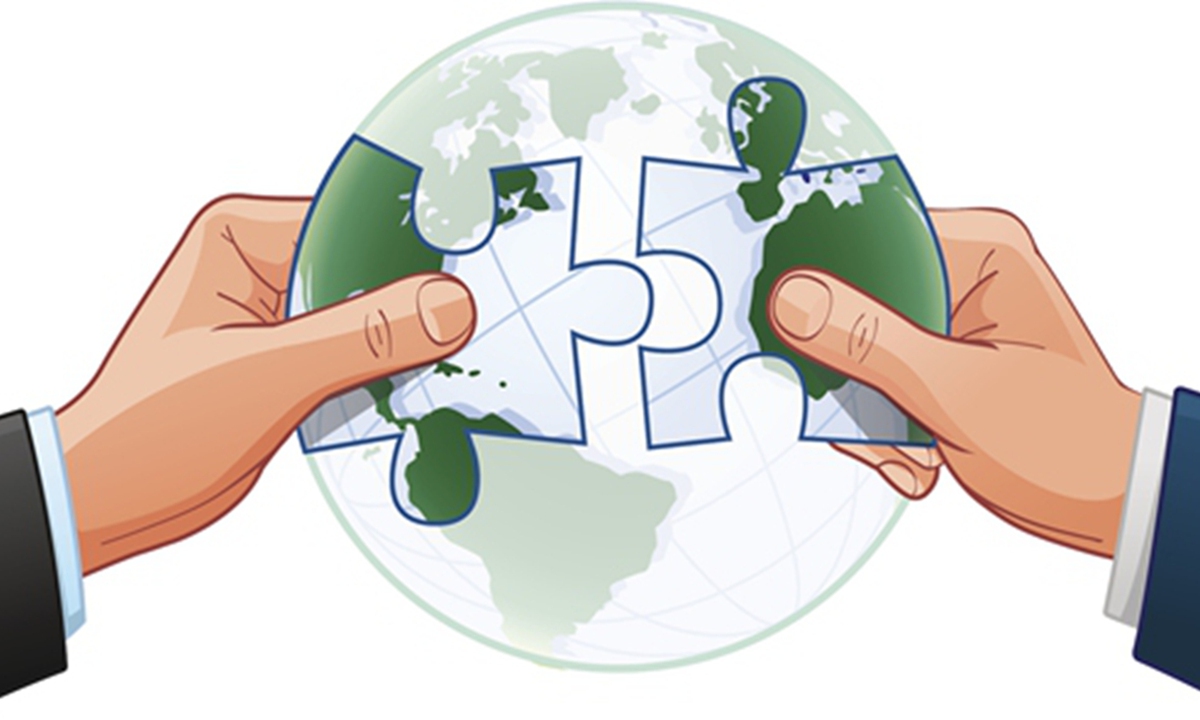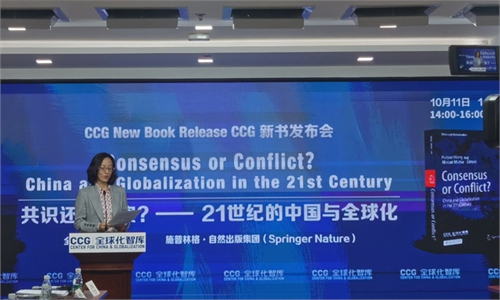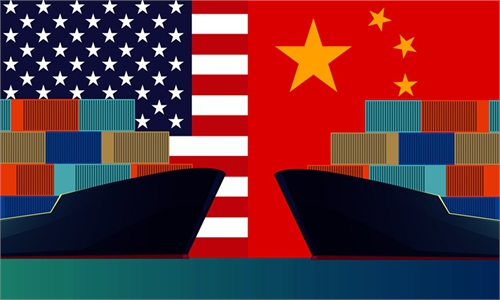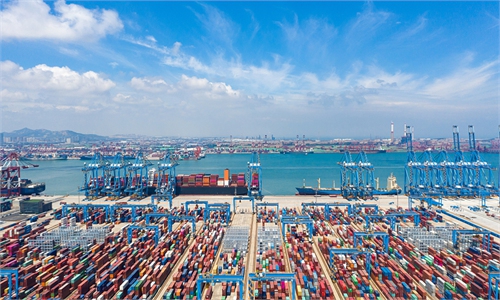
Photo: VCG
Chinese President Xi Jinping attended the 2017 annual meeting of the World Economic Forum in Davos Switzerland, and during the opening session on January 17, 2017 he delivered a keynote speech which was entitled "Jointly Shoulder Responsibility of Our Times, Promote Global Growth." President Xi made a call to unswervingly promote economic globalization and "chart the right course for economic globalization."
In the past five years, the world has undergone profound changes.
First, the US government has changed. When President Xi attended the World Economic Forum in 2017, former US President Donald Trump was about to take office, while Joe Biden served as the vice president at that time. The domestic and foreign affairs of the US have undergone evident changes - Trump pursued "America First," and later Biden highlighted "America is back."
The second one is the novel coronavirus pandemic. Previously, economic globalization encountered prominent contradictions such as insufficient growth momentum, lagging governance, and unbalanced development, but people-to-people exchanges between countries could be guaranteed. Now that the pandemic has lasted for more than two years, face-to-face diplomatic activities have largely reduced, while most diplomacy is done virtually. Against this background, promoting economic globalization faces rising difficulties.
Has globalization progressed during the past five years? The answer is yes -- it's not pushed by governments, but largely accelerated by technology advances. The development of digital economy has speeded up global interconnectivity, while climate change has forced the international community to strengthen global cooperation.
The irreversibility of globalization is driven by technology, instead of policy. In the past, WTO negotiations were the main driving force for globalization. But today, the digital economy and the internet are irreversible which cannot be decoupled. No country can decouple from another. This is the biggest irreversible factor of globalization. Therefore, even though there have been many factors that are not conducive to globalization in the past year, the world is still moving toward globalization, though at a slower pace.
The second reason why globalization has not reversed course is climate change. The US signed the Kyoto Protocol, the first international protocol to reduce the impact of human beings on the climate, but dropped out of the agreement in 2001. During the 26th UN Climate Change Conference in Glasgow last year, China and the US issued a joint statement to promote climate cooperation which played a decisive role in the final achievement of the conference. It seems to be a climate issue, but in essence, it is a pragmatic issue of sustainable development, low-carbon economy, technological innovation and economic transformation. Climate change is another urgent task amid globalization, and its mitigation calls for global governance and partnership.
Over the past five years, globalization has displayed new phenomenon -- regional integration, bilateral and plurilateral integrations are replacing multilateral integration. The CPTPP is activated and the RCEP has come into effect, both complementary to globalization. Although the WTO has been lacking a unified agreement among 164 economies for the past five years, many plurilateral agreements are in progress. For example, the plurilateral negotiation among 67 WTO members on domestic services regulation has made a successful conclusion.
It can be seen that present-day globalization is different from what it was in the past, and is irreversible. Just as President Xi said five years ago, "Any attempt to cut off the flow of capital, technologies, products, industries and people between economies, and channel the waters in the ocean back into isolated lakes and creeks is simply not possible. Indeed, it runs counter to the historical trend." Economic globalization will continue to advance, though it will face new problems.
The biggest challenge facing globalization is how to resolve the development crisis, which requires strengthened cooperation among multilateral mechanisms such as the UN, World Bank, IMF and WTO. It also needs the coordination from OECD, G20 and other platforms to promote cooperation on The 2030 Agenda for Sustainable Development. Developed countries should assume responsibility in aiding underdeveloped countries.
The reforms on multilateral mechanisms, WTO in particular, need to keep pace with the times. Everyone admits that the current world pattern is different from the one of the past. Previously, globalization was dominated by Western countries under the Bretton Woods system. But now, China and many other Asian economies are emerging. A majority of the WTO's 164 members are developing countries. The WTO takes the practice of decision-making by consensus. However, as every member has their own interests, it's difficult to reach a complete consensus, and it's imperative to reform WTO.
Another challenge is the serious shortage of global public goods. In the context of the pandemic, the US and some other countries have strengthened protectionism, leading to the rupture in the global industrial and supply chains. The US should shoulder its responsibilities as the largest developed economy. The US and other developed countries shouldn't only care about themselves.
The article was compiled by Global Times based on an interview with Chen Fengying, a research fellow at the China Institutes of Contemporary International Relations. opinion@globaltimes.com.cn



